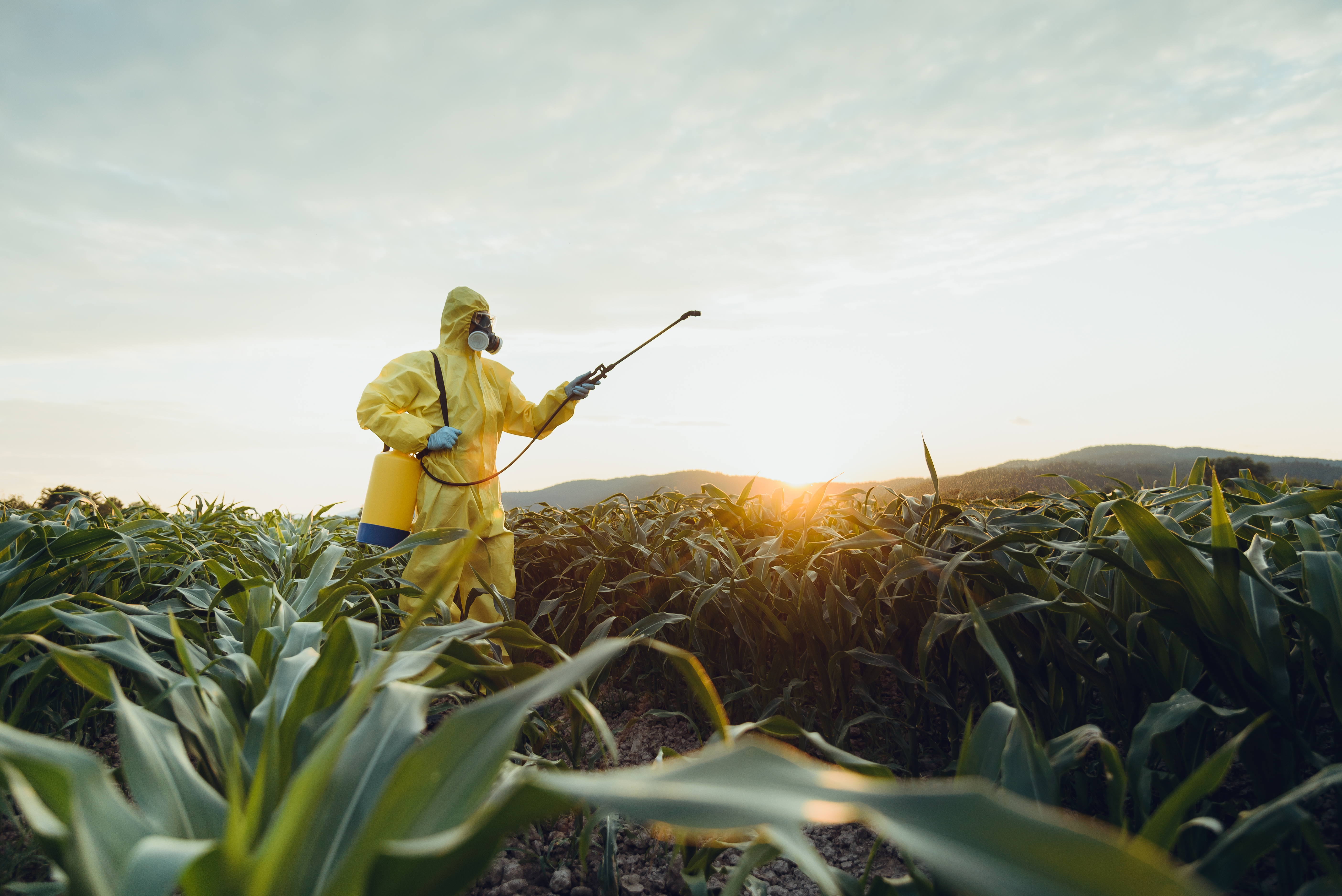Three Simple Steps Can Protect Your Health, Your Garden and LA
May 2021. By Oscar Ortega: What is a pest? You and I may immediately think of aphids and thrips. Pesticides, insecticides and herbicides, on the other hand, may see you, me, our pets, kids, and monarch butterflies as pretty pesky too!
An abundance of research connects the thirty most commonly used pesticides with dramatic harms including birth defects, cancer, endocrine issues, kidney and liver effects, neurotoxicity, and reproductive issues. Not to mention pesky allergies and skin sensitivity! These harms can occur when they are applied correctly and not tracked indoors. More often than not, however, those applying these chemicals to home gardens do not wear adequate protection, and these chemicals easily find their way into homes and waterways.

Ready for the good news? These toxic chemicals simply are not necessary to supporting plant vitality – or even to getting rid of garden pests. We take three steps to keep any garden beautiful and pesticide free:
Water Less: Most homeowners, and many gardeners, over water lawns and flower beds. Particularly when sprinklers apply “overhead” water, the resulting rot will attract pests, as will any standing or pooling moisture.
Watch More: Many infestations occur due to poorly timed or executed pruning. Trees and shrubs do their best at withstanding pests attracted to the wounds when temperatures are cool. When prunes match the desired structure of foliage, fewer and less frequent cuts are needed. This further minimizes the opportunity for infestation.
Apply Patience: When we see aphids, we know a garden will soon fill with ladybugs, attracted to their preferred feast. Sometimes leaning into this future delight requires a little deprograming. Chemical companies spend a great deal to ensure our disgust in some pests is great enough to inspire immediate action. We trust the cycle of life enough not to let their marketing get to us!
A little patience can go along way. These three strategies will help even poorly maintained, traditionally landscaped spaces adapt to life without toxic chemicals. That said, because planting the right plant in the right place with adequate space goes a long way toward ensuring that plant’s long term happiness, it is much easier to maintain smartly designed and installed native gardens. In fact, effective, healthy landscape maintenance does not look (or feel) all that different from enjoying a garden!

All this patience adds up! Each year, FormLA Landscaping keeps more than 2400 lbs of these toxic chemicals from our watershed. While we do it to protect you and ourselves, we are pretty proud our expert horticultural care also saves LA!
More Information
- Maintenance | Tips: Be Good to Your Heart
- Beyond Pesticides: Health Effects of 30 Common Pesticides
- Bob Villa: 8 Reasons Not to Use Pesticides
- Country Living: 10 Most Toxic Items at the Garden Center
- Earth Easy: How Toxic Are Lawn Care Chemicals